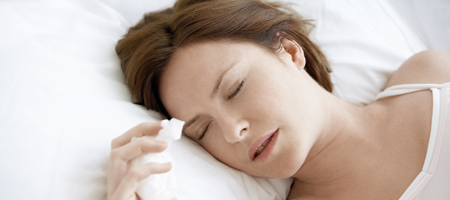Underactive Thyroid
Underactive thyroid is a condition that affects both men and women but it is more common in women.

Underactive thyroid is a condition that affects both men and women but it is more common in women – about 15 in every 1000 women are thought to have an underactive thyroid and about 1 in every 1000 men. About 1 in 4500 babies are born with a condition called congenital hypothyroidism, which is another type of underactive thyroid.
The Thyroid Gland and Thyroxine
Your thyroid gland makes a hormone called thyroxine. Thyroxine helps to control your metabolism. If your thyroid stops thyroxine, you will feel:
- Tired
- Depressed
- Gain weight and have difficulty losing weight
- Have dry skin and hair
- Be sensitive to the cold
- Have muscle aches
Your GP can do a blood test to check if you have an underactive thyroid.
What Causes Under Active Thyroid?
The most common type of underactive thyroid seen in Ireland is called Hashimoto’s Thyroiditis. This is an auto-immune condition where your body ‘attachs’ your thyroid gland and you stop making enough thyroxine. If you have Hashimoto’s thyroiditis, the treatment is to take medicine that has the thyroxine hormone.Your doctor will prescribe this for you.
Under active thyroid may also be caused by a lack of Iodine. Iodine is an important mineral that helps your body to make thyroxine. Iodine also helps to keep your thyroid gland healthy. It is very unusual to have an underactive thyroid due to lack of iodine in Ireland. This type of under active thyroid is more common in countries that have very low levels of iodine in the soil.
Did you know?
If you have an underactive thyroid that is caused by Hashimoto’s Thyroiditis, then taking iodine supplements generally make no difference. You need to take the medicines that your GP prescribes.
Where can I find Iodine in Food?
We need 150mcg of Iodine everyday. It is found in milk and dairy foods like yoghurt and in fish. Eggs are also a good source. Iodine is not found in large amounts in fruit, vegetables, beans or nuts.
| Iodine in Food | Need 150mcg per day |
| 200mls low fat milk | 60mcg |
| 200mls Full Fat Milk | 62mcg |
| 1 egg | 53mcg |
| 100g Cod | 110mcg |
| 100g Plaice | 33mcg |
| 100g Whiting | 80mcg |
| 100g Mackerel | 170mcg |
| 125g pot yoghurt | 35mcg |